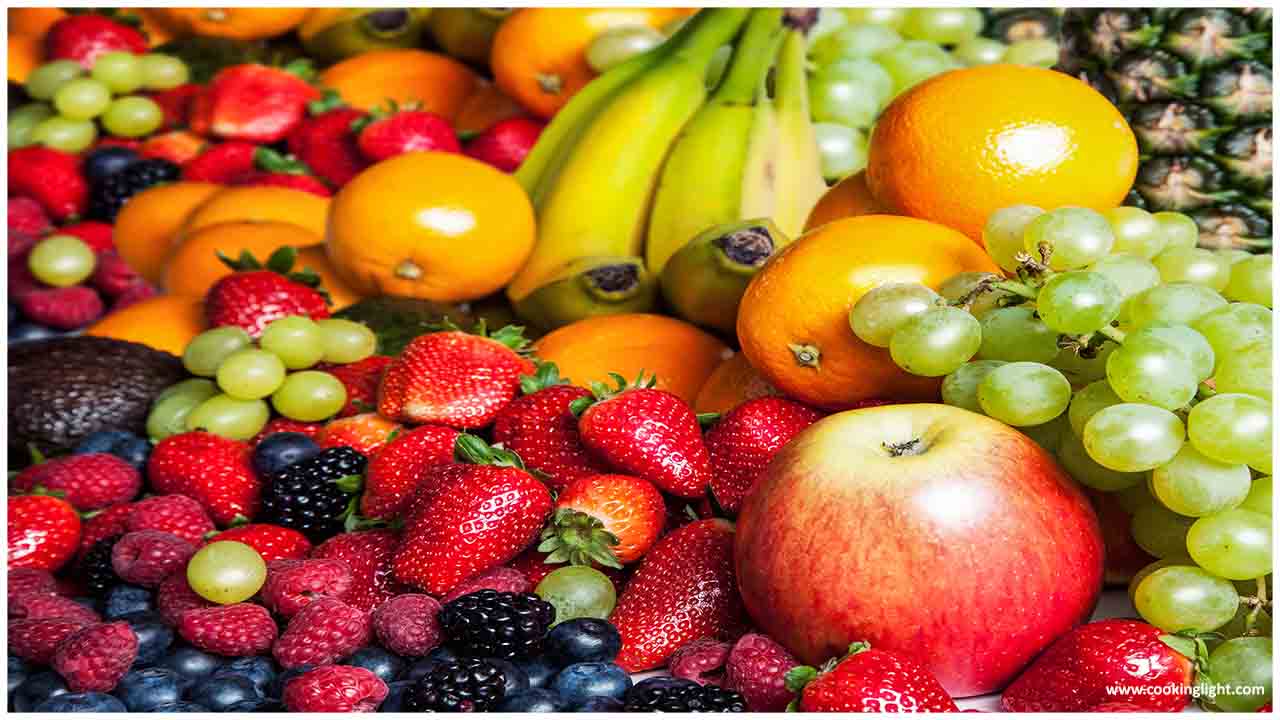Eating fruit daily is a great way to boost our health. Yet, there are few fruits which are more beneficial than the others. Let’s see which those are.
Here are the 19 health boosting fruits on earth.
Grapefruit
Grapefruit is highly nutritious. It is one of the healthiest citrus fruits with good source of vitamins and minerals. It is known for its ability to aid weight loss, helps in fighting cancer due to its high antioxidant value, reduce cholesterol levels, help prevent kidney stones and reduces insulin resistance.
A study done on 91 people who were given half fresh grapefruit to eat before meals, lost 1.3 kg more weight than those who didn’t consume grapefruit before meals. In the same study, the grapefruit group had a significant reduction in insulin levels and reduced insulin resistance.
Pineapple
Among the list of tropical fruits, pineapple is the nutrition coolster! A cup of pineapple gives 131% of the Reference Daily Intake (RDI) for vitamin C and 76% of the RDI for manganese. It contains a mixture of enzymes called as bromelain, which has anti-inflammatory properties and has a great ability to digest protein. Studies have shown that bromelain may help against cancer and tumor growth.
Avocado
Most fruits are high in carbohydrates, while avocado is low in carbohydrates, loaded with potassium, fiber and magnesium and mainly comprises of healthy fats hence avocado is absolutely different from other fruits. The majority of the fat in avocado is oleic acid, a monounsaturated fat which has been shown to reduce inflammation and better the heart condition. A single avocado provides 28% of the RDI for potassium and adequate potassium is associated with reduced blood pressure and a lower risk of stroke.
Blueberries
Since long we know the health benefits of blueberries. They are particularly high in fiber, vitamin C, vitamin K and manganese. They are superbly high in antioxidants hence have powerful effects on the immune system. The antioxidants in blueberries have been studied extensively and it has been shown to reduce the risk of chronic conditions, such as heart disease, diabetes and Alzheimer’s. One study found that eating blueberries regularly may increase natural killer cells in the body which will help to defend against oxidative stress and viral infections.
Pomegranate
Pomegranates are not only nutrient dense, they also contain powerful plant compounds that are responsible for most of their health benefits. Their antioxidant levels have shown to be three times higher than those found in green tea or red wine. Studies suggest that pomegranates have anti-inflammatory effects and may help to reduce the cancer risk.
Mango
The yum mangoes are an excellent source of vitamin C, they also have soluble fiber, which can provide many health benefits, antioxidant and anti-inflammatory properties that may help reduce the risk of disease.
Strawberries
Strawberries are high in antioxidant capacity vitamin C, manganese, folate and potassium. Compared to other fruits, strawberries have a relatively low glycemic index. Some animal studies have found that strawberries may also help prevent cancer and tumor formation.
Cranberries
Cranberries have an excellent nutrition profile. They are rich in vitamin C, manganese, vitamin E, vitamin K1 and copper. Also contain a significant amount of antioxidants called flavanol and polyphenols. What makes cranberries unique from other fruits is that their juices and extracts help prevent urinary tract infections. The compounds proanthocyanidins are thought to be responsible for this effect, as they can prevent bacteria from attaching to the lining of the bladder and urinary tract.
Lemons
Lemons are known for their high vitamin C content. They may be particularly helpful in promoting heart health due to their ability to lower blood lipids and lower the blood pressure. Some studies have shown that the citric acid in lemon has the ability to treat kidney stones and other studies done on animal, suggests that the plant compounds in lemons can help prevent weight gain.
Durian
Durian is rich in antioxidants, manganese, B vitamins, copper, folate and magnesium. One cup durian provides 80% of the RDI for vitamin C.
Watermelon
Watermelon is particularly high in vitamins A and C and also rich in antioxidants like lycopene, carotenoids and cucurbitacin E. Some of these antioxidants have been researched to have anti-cancer properties. Lycopene intake has been studied extensively to suggest a reduced risk of cancers of the digestive system, while cucurbitacin E may inhibit tumor growth.
Olives
Olives are a great source of antioxidants, vitamin E, iron, copper and calcium, which may help prevent heart disease and liver damage, as well as have anti-inflammatory effects. Like avocados, olives contain oleic acid, which may provide several benefits for heart health and cancer prevention.
Additionally, studies suggest that the plant compounds in olives are responsible for a reduced risk of osteoporosis.
Blackberries
Blackberries from the berries family is another healthy fruit, packed with high vitamins C content, Vitamin K, manganese, fiber and antioxidants. The antioxidants in blackberries have been shown to reduce inflammation and aging of the arteries. Both effects may protect against chronic illness, such as heart disease and cancer. One cup of blackberries provides 8 grams of fiber.
Oranges
Oranges are like the comfort food while travelling or as flavorings. Hence it happens to be one of the most popular and nutritious fruits in the world. Consuming one medium orange will provide a significant amount of vitamin C and potassium just like their lemon-brother! Plus they are a good source of B vitamins, such as thiamine and folate. The plant compounds in oranges are responsible for most of their health benefits. These include flavonoids, carotenoids and citric acid. Vitamin C and citric acid have been studied to help increase iron absorption and prevent anemia.
Bananas
Bananas are known for being high in potassium. One medium banana provides 12 percent of the RDI for potassium. A unique property of bananas is their carbohydrate content. When the banana is green, the unripe bananas consist largely of resistant starch, which may improve blood sugar control and make you feel full. Bananas also contain pectin, which may improve blood sugar control and digestive health (But make sure to consult your dietician for easy incorporation of this fruit in the diet). Studies have shown that the high carbohydrate and mineral content of bananas makes them a great source as a pre-workout meal.
Red and Purple Grapes
Grapes are very high in antioxidant content. The anthocyanins and resveratrol in grapes have both been shown to reduce inflammation, protect your heart, eyes, joints and brain.
Guava
Guava has a remarkable Vitamin C content, also, rich in fiber, folate, vitamin A, potassium, copper and manganese. Eating just one (28 grams) of guava will give you 107% of the RDI for vitamin C. Guava is another great source of pectin, which benefits digestion and may help prevent colon cancer. The antioxidants in guava have been shown to protect cells from oxidative damage, indicating that they may help reduce the risk of chronic disease.
Papaya
Papaya is a very healthy fruit that is high in vitamin C, vitamin A, potassium and folate. They are great for digestion due to the enzyme papain which makes the protein easier to digest. It is also rich in the anti-cancer antioxidant lycopene. Studies suggest that the body absorbs lycopene better from papaya than from other lycopene-rich fruits and vegetables.
Cherries
Cherries are rich in potassium, fiber and vitamin C. They contain antioxidants, including anthocyanins and carotenoids, which reduce inflammation and may help prevent several diseases. Another impressive health benefit of cherries is their melatonin content. Melatonin is a hormone that signals your brain when it’s time to sleep. It may help treat insomnia and other sleep disorders.
Try eating different variety of fruits, because though all fruits are healthy, some are a little better.

 Oranges are like the comfort food while travelling or as flavorings. Hence it happens to be one of the most popular and nutritious fruits in the world.
Oranges are like the comfort food while travelling or as flavorings. Hence it happens to be one of the most popular and nutritious fruits in the world.









.jpeg)



.png)





.jpg)




.jpg)




